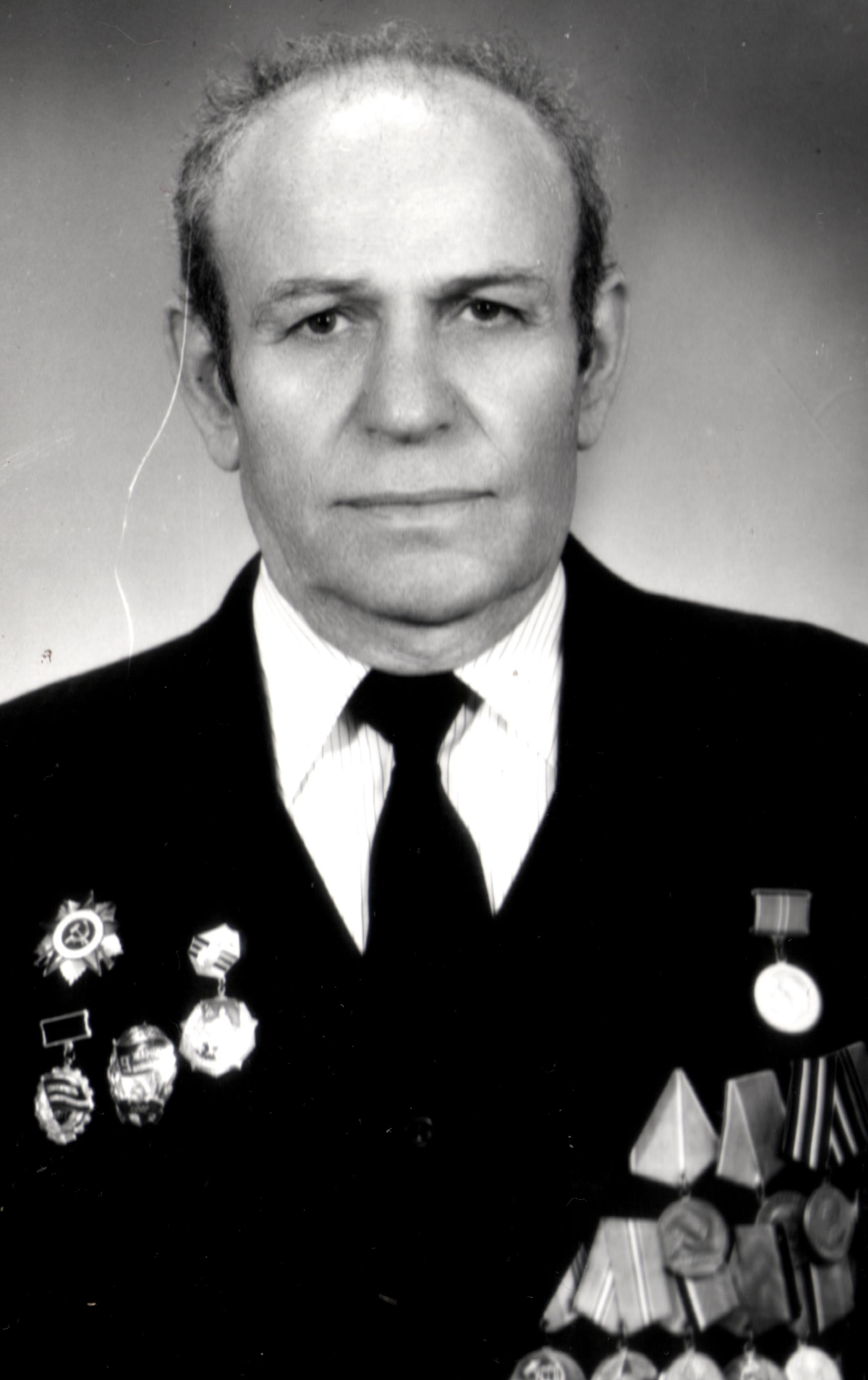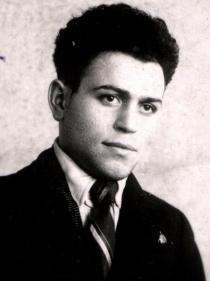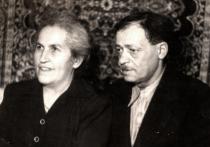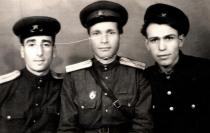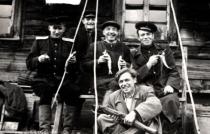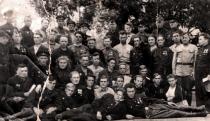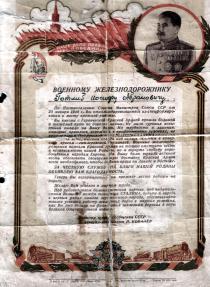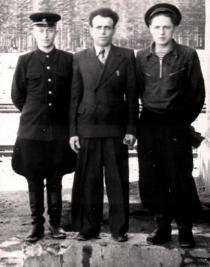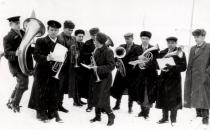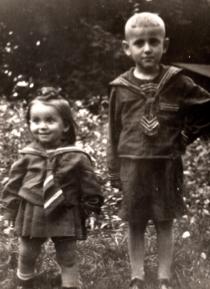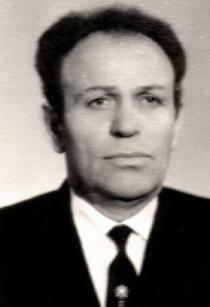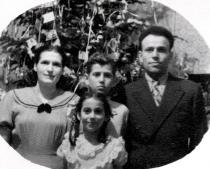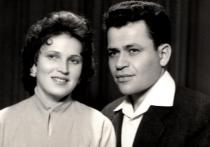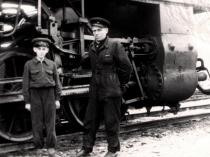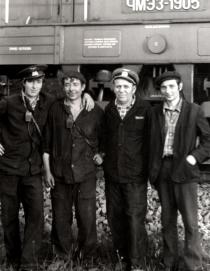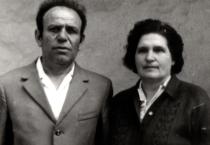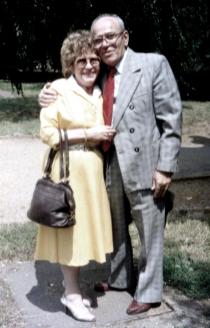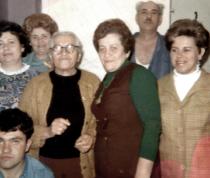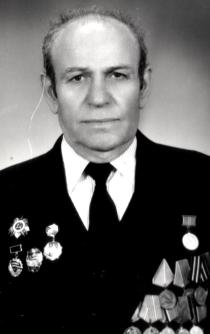This is me, Iosif Gotlib, photographed on 9 May, Victory Day, after visiting the monument to an unknown soldier. I have my labor and combatant awards on my jacket: the 1st row from the left: an Order of the great Patriotic War of grade 2, 2nd row: from the right - medal 'For courage', medals for Keningsberg and for victory in the Great Patriotic War. On the right are medals for fighting back towns, for glorious labor in the Great Patriotic War, medals awarded on Victory anniversaries and medals for laborious merits. This photo was taken in Uzhhorod in 2002.
I worked as electric locomotive operator all my life. I became a pensioner in 1977, but I continued to work in the depot. Firstly, it was hard to live without working. It seemed to me I would die if I quit my job. Besides, it was hard to live on a pension. I had to support my daughter. I got a job of a track dispatcher. It was an interesting and responsible job and I liked it. I worked in the depot until 1992. Only after I had my first stroke my family talked me out of going to work. Perestroika ended in the breakup of the USSR [editor's note: Yeltsin in 1991 signed a deal with Russia's neighbours that formalized the break up of the Soviet Union. The USSR was replaced by the Commonwealth of Independent States (CIS).]. Life became harder. I was an ace, the best locomotive operator, I have over 20 awards for my work, but now I am a beggar.
After declaration of independence the rebirth of the Jewish life in Ukraine began. Before Hesed was established in Uzhhorod in 1999 the Jewish community began its activities in Uzhhorod. People began to go to the synagogue freely and stopped hiding their Jewish identity. I've never attended the synagogue. I've been an atheist, though I believe in some superior force supervising us. My wife and I read Jewish newspapers and magazines Vek (Century), and Yevreyskiye Vesti (Jewish news) that we receive in Hesed and then we discuss what we've read. Of course, Hesed helps us to survive. They used to bring us meals from Hesed, but my wife and I decided we would have them brings us food packages rather than cooked meals. Not because their meals were not good. It's just that I, like any other man, think that my wife can cook better. Hesed provides medications and makes arrangements for a stay in hospital, if necessary. When my grandson Anton was at school he went to Jewish summer camps. He is much closer to Jewish life than me. Unfortunately, after my illness I cannot go to meeting or concerts in Hesed. I hardly ever leave my home, but we constantly feel Hesed's care. This is how it should be: if Jews hadn't supported each other, they wouldn't have survived and wouldn't remain a nation through centuries.
